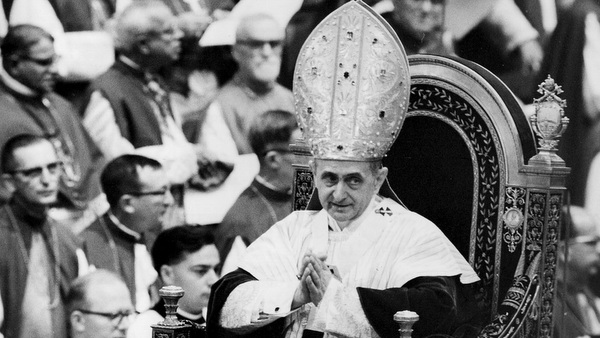The role of the laity: Priest, prophet and king
The Second Vatican Council, in its Dogmatic Constitution on the Church (“Lumen Gentium”) promulgated by Blessed Paul VI on Nov. 21, 1964, presents succinctly the church’s teaching on the role of the laity in the church and in the world. This teaching can be found in Chapter 4, “The Laity,” Nos. 30-38.
Aug 12, 2017

By Daniel S. Mulhall
The Second Vatican Council, in its Dogmatic Constitution on the Church (“Lumen Gentium”) promulgated by Blessed Paul VI on Nov. 21, 1964, presents succinctly the church’s teaching on the role of the laity in the church and in the world. This teaching can be found in Chapter 4, “The Laity,” Nos. 30-38.
A year later, the council expanded on this teaching in the Decree on the Apostolate of the Laity (“Apostolicam Actuositatem”), promulgated by Blessed Paul VI on Nov. 18, 1965. Here we will look at the teaching found in “Lumen Gentium.”
First, “Lumen Gentium” defines the laity as the faithful who have been baptized who aren’t clergy, brothers or sisters. As members of the people of God, they are “made one body with Christ” and share in his office of priest, prophet and king.
They are to the best of their ability to carry on the church’s mission to proclaim the good news of Jesus Christ to the world by “engaging in temporal affairs and by ordering them according to the plan of God,” and in so doing, sanctify the world through the witness given by their lives (No. 31).
The laity share in the saving mission of the church with a special vocation to “make the church present and operative” in the places where only they can reach people: in the home, at work, in their clubs and groups, at sporting events and the like (No. 33).
Members of the laity also may work in official church ministries, such as serving as catechists, extraordinary ministers of holy Communion and pastoral associates, among many others.
Christ himself strengthens the laity so they can fulfill their role in the church’s mission, sharing with them his priestly office so that they may offer worship directly to God the Father through their prayer, works and ordinary life, and in so doing, “consecrate the world itself to Christ.”
Through their relationship with Christ, the laity share in Christ’s prophetic mission by serving as both witnesses to the faith and, perhaps more important, as the “sensus fidei,” which the International Theological Commission in its 2014 document “‘Sensus Fidei’ in the Life of the Church” defines as “an instinct for the truth of the Gospel, which enables them to recognize and endorse authentic Christian doctrine and practice, and to reject what is false” (No. 2).
In this way the laity are “powerful proclaimers” of the faith, states “Lumen Gentium” (No. 35).
Finally, the laity share in Christ’s kingly office through their secular activity as they promote justice, love and peace. Doing our daily work well, whatever it is, helps to promote the Creator’s plan and bring the light of Christ to the world.
But that isn’t all: The laity are also called to “remedy the customs and conditions of the world” that are sinful. Through the efforts of the laity in opposing injustice, virtue is promoted, impregnating “culture and human activity with genuine moral values” (No. 36).
An important role, wouldn’t you say?--CNS







Total Comments:0